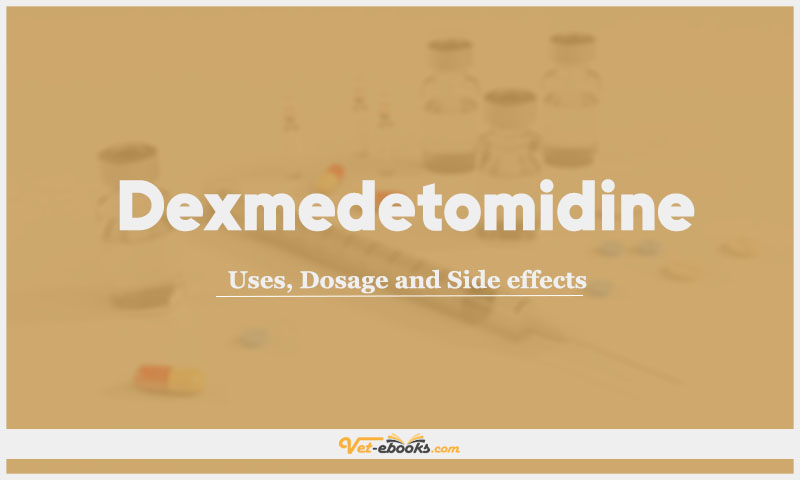Dexmedetomidine: Uses, Dosage and Side Effects

Overview
Agonist at peripheral and central alpha-2 adrenoreceptors, causing sedation, muscular relaxation, and analgesia.
Uses of Dexmedetomidine
- To provide sedation and premedication alone or in conjunction with opioid analgesics.
- To relieve acute noise anxiety.
- Dexmedetomidine combined with ketamine is used to provide surgical anesthesia in cats for a brief period of time (20-30 minutes).
- Dexmedetomidine is also increasingly being used in very low doses to control emergence excitation in dogs and cats during anesthesia recovery and to provide analgesia when administered via constant rate infusion.
Dose of Dexmedetomidine in Dogs and Cats
Dogs:
- Control of noise-related anxiety: 125 μg (micrograms)/m2 applied to the oral mucosa as a gel 30–60 minutes before the onset of the noise stimulus, or after the first signs.
- Dosing can be repeated after 2–3 hours for a maximum of occasions.
Dogs, Cats:
- Premedication: 2–10 μg (micrograms)/kg i.v., i.m, s.c. in combination with an opioid (use the lower end of dose range i.v.).
- Emergence excitation: 1 μg/kg i.v. can be given to manage emergence excitation during recovery from anesthesia.
- Perioperative analgesia and rousable sedation: 1–2 μg/kg/h constant rate infusion is indicated.
Side Effects of Dexmedetomidine in Dogs and Cats
- Suppressing ADH secretion causes diuresis, mydriasis, and a transient rise in blood glucose.
- When vomiting is prohibited, avoid dexmedetomidine because i.m. administration often causes vomiting. (e.g. foreign body, raised intraocular pressure).
- Diabetic animals should not use it due to glucose effects.
- All alpha-2 agonists can cause spontaneous arousal from deep sedation after stimulation, so aggressive animals sedated with dexmedetomidine must be handled carefully.
Contraindications of Dexmedetomidine in Dogs and Cats
- Do not use in animals with cardiovascular or other systemic diseases.
- The use of dexmedetomidine in geriatric patients is not advisable.
- It should not be used in pregnant animals, nor in animals likely to require or receive sympathomimetic amines.
Tip
Do You Want To Increase Your Veterinary Knowledge and Practical Skills?
You Can Now Browse and Download +3000 Books For Veterinary Professionals & Students Online.
Download Veterinary Books




















